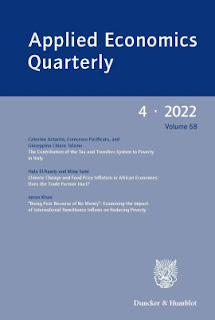Turner College Economist and Co-Authors Investigate Relationship between Bond Yields and Government Deficits in Canada
A common finding in academic studies is that higher budget deficits, expressed as a percentage of GDP, tend to elevate intermediate and longer-term interest rates. A new study by Turner College economist Frank Mixon and his coauthors Richard Cebula of the University of Tennessee and Jiayi Xu of Siena College empirically investigates the impact of higher budget deficits on real yields on 10-year Canadian Treasury bonds, particularly during a time frame that includes the COVID-19 pandemic. To do so these researchers applied quarterly data from 2013 through 2022 to a loanable funds framework that accounts for government debt, the M2 money supply, net international capital inflows, the unemployment rate, real interest rate yield on 10-year Canadian Treasury
bonds and the COVID-19 pandemic. Results from their study, which is set to appear in a future issue of Applied Economics Quarterly, suggest that the real yield on 10-year Canadian Treasury bonds rises with increases in the real interest rate yield on 10-year Canadian Treasury bonds, the unemployment rate, and the national debt, while it falls with increases in the M2 money supply. With regard to the variables of interest, higher central government budget deficits lead to higher real bond yields, while, given the Canadian government policy reactions, real bond yields have risen with the onset of COVID-19.

Comments
Post a Comment